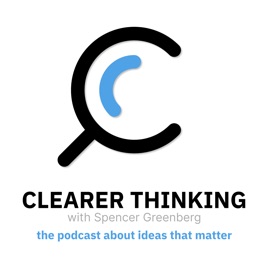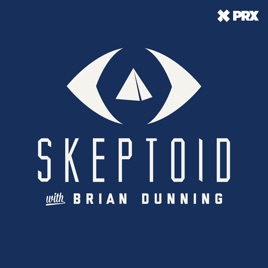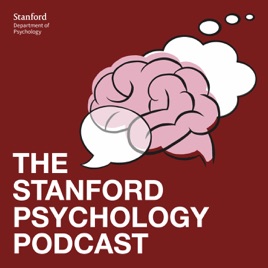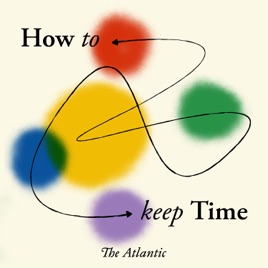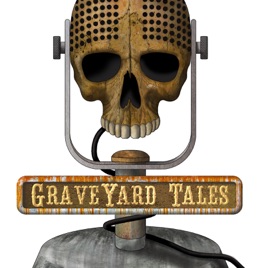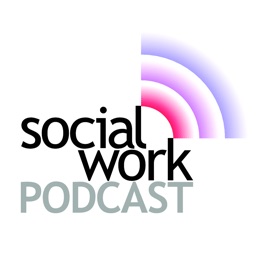Academic group think, free speech norms, and the psychology of time (with Anne Wilson)
2024/02/21
Read the full transcript here. (https://podcast.clearerthinking.org/episode/198/#transcript) • How does psychological time differ from clock time? How does a person's perception of time relate to their personal identity? How does a person's view of their past shape how they view their future? To what extent do people differ in the degree to which they feel like a single, continuous person across time? What effects does a person's perception of time have on their assessment of injustices? Why aren't there more adversarial collaborations in academia? Is academia generally politically left-leaning? How does lack of political diversity in academia compare to (e.g.) lack of gender or economic diversity? Are liberal or progressive academics openly willing to discriminate against conservative academics when, for example, the latter have opportunities for career advancement? Is anyone in the US actually calling for legal changes around free speech laws, or are they only discussing how people ought to be socially ostracized or punished for expressing certain viewpoints? And is there a meaningful difference between legal and social punishments for those who make illegal or taboo statements? Are we in the midst of an ideological war right now? And if so, ought we to quash in-group criticism to avoid giving ammunition to our ideological enemies? Academia seems to have hemorrhaged public trust over the last few decades; so what can be done to begin restoring that trust? • Anne Wilson is a professor of social psychology at Wilfrid Laurier University. Much of her research focuses on self and identity over time both for individual self and collective identities like nation, race, and gender. Her work illuminates the often-motivated malleability of our reconstructions of the past, forecasts of the future, and subjective perceptions of time itself. Her broad focus on motivated reasoning and cognitive bias has also led to more recent research on intergroup misperception, political polarization, and how speech suppression and censorship can inhibit collective bias correction. Follow her on Twitter / X at @awilson_WLU (https://twitter.com/awilson_WLU), email her at awilson@wlu.ca (mailto:awilson@wlu.ca), or learn more about her work at her labe website: annewilsonpsychlab.com (https://www.annewilsonpsychlab.com/). • Further reading: • "Prosocial motives underlie scientific censorship by scientists: A perspective and research agenda", by Cory J. Clark, Lee Jussim, Komi Frey, Sean T. Stevens, Musa al-Gharbi, Karl Aquino, J. Michael Bailey, Nicole Barbaro, Roy F. Baumeister, April Bleske-Rechek, David Buss, Stephen Ceci, Marco Del Giudice, Peter H. Ditto, Joseph P. Forgas, David C. Geary, Glenn Geher, Sarah Haider, Nathan Honeycutt, Hrishikesh Joshi, Anna I. Krylov, Elizabeth Loftus, Glenn Loury, Louise Lu, Michael Macy, Chris C. Martin, John McWhorter, Geoffrey Miller, Pamela Paresky, Steven Pinker, Wilfred Reilly, Catherine Salmon, Steve Stewart-Williams, Philip E. Tetlock, Wendy M. Williams, Anne E. Wilson, Bo M. Winegard, George Yancey, and William von Hippel (https://www.pnas.org/doi/10.1073/pnas.2301642120) • "The Future of Memory: Remembering, Imagining, and the Brain", by Daniel L. Schacter, Donna Rose Addis, Demis Hassabis, Victoria C. Martin, R. Nathan Spreng, and Karl K. Szpunar (https://www.cell.com/neuron/pdf/S0896-6273(12)00991-9.pdf) • "Autobiographical Memory and Conceptions of Self: Getting Better All the Time", by Michael Ross and Anne E. Wilson (https://journals.sagepub.com/doi/abs/10.1111/1467-8721.01228) • "When Slights Beget Slights: Attachment Anxiety, Subjective Time, and Intrusion of the Relational Past in the Present", by Kassandra Cortes and Anne E. Wilson (https://journals.sagepub.com/doi/full/10.1177/0146167216670606) • "Crimes of the Past: Defensive Temporal Distancing in the Face ... [Read more: https://podcast.clearerthinking.org/episode/198/anne-wilson-academic-group-think-free-speech-norms-and-the-
more
